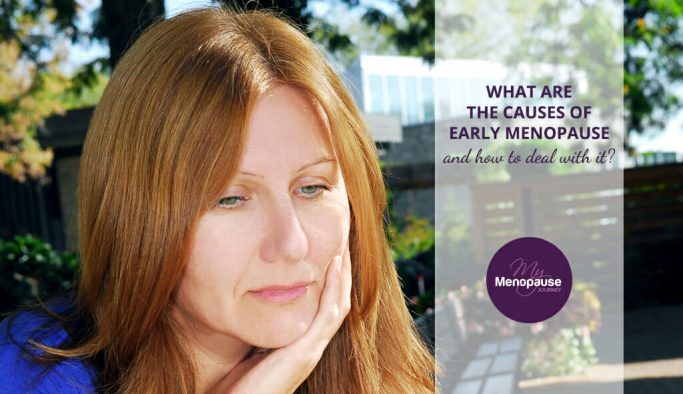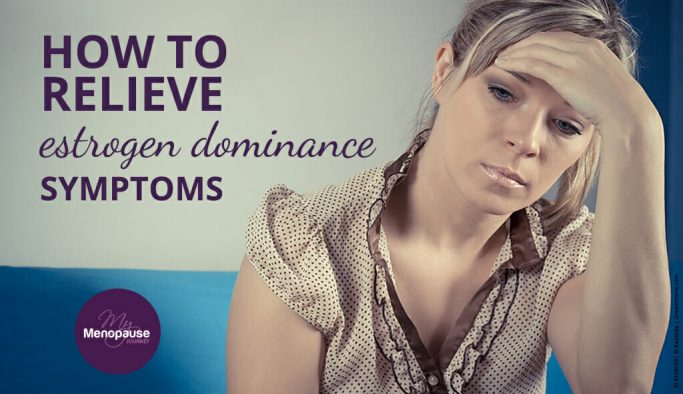You know that feeling when you’re in midlife, and one day you just realize your energy just isn’t how it used to be? Or maybe you’ve noticed those mood swings making an uninvited appearance?
You’re definitely not alone. As we navigate this stage of life, our body goes through many shifts that can be felt physically and emotionally. That’s where DHEA comes into play!
Often dubbed the “mother hormone,” DHEA has a lot to offer, from boosting your energy, lifting your mood and keeping that youthful glow. Join me as we uncover the remarkable DHEA benefits for women and find out how it can help you stay vibrant!


The DHEA Hormone: What It Is and How It Is Linked to Menopause
DHEA (dehydroepiandrosterone) is a hormone produced mainly by the adrenal glands. The DHEA hormone plays a crucial role in the production of estrogen, progesterone and testosterone — making it essential for hormonal balance and overall well-being in midlife!
Yes, our adrenals (those little powerhouses that help your body handle stress) take on a bigger role in hormone production when the ovaries retire in menopause.
If your adrenals are not working optimally (usually due to chronic stress), they may not produce enough DHEA and other fight-or-flight hormones we need to deal with stressors!
Now, back to DHEA: the DHEA hormone is a precursor to estrogen, progesterone and testosterone, meaning your body converts it into these essential sex hormones. Why is that important?
Oh, super important for us to maintain hormonal balance. Especially when our hormones start to naturally decline in menopause! As we age, our DHEA levels go down, too. And by the time we hit midlife, they’ve dropped by about 80-90% from their peak in our 20s.
Now, since estrogen, progesterone and testosterone rely on DHEA for production, this decline can contribute to many classic menopause symptoms, including:
- Low libido
- Lower tolerance to stress
- Fatigue
- Brain fog
- Weight gain (especially belly fat)
- Vaginal dryness
- Mood swings
- Anxiety
- Weaker bones and muscles
- Dry skin
Without a doubt, the DHEA hormone can help you combat those symptoms! It works wonders on keeping your hormones balanced, plus it offers many more benefits for your health in midlife. Discover the other DHEA benefits for midlife women next section!
There are many ways to prevent the hormone from getting depleted in our body. We can support the adrenals with better stress management, healthy eating and active lifestyle.
Beyond Hormonal Balance: What are the Best DHEA Benefits for Midlife Women?
Aside from being a precursor hormone (and eventually keeping our hormones balanced), DHEA also gives us some of the best health perks we need in midlife, including:
1. Mood Stabilizer
Feeling like your mood swings could start a carnival ride? DHEA could lend a hand!
Researchers believe it helps with mood stability and may even help keep those pesky feelings of anxiety and depression at bay!
2. Brain Booster
DHEA helps protect your brain cells from the ravages of aging — think of it as a shield keeping your mind young and alert! Studies also suggest that DHEA can give your memory a boost — perfect for remembering where you left your keys!
3. Bone-Building Bestie
All my postmenopause ladies, listen up!
Research suggests DHEA could help with bone density, making it a wonderful ally in keeping those bones strong and healthy. We need to stay upright to keep doing what we love, right?
4. Weight Goals Cheerleader
Need help rocking those weight goals?
Some studies hint that DHEA can assist with body composition and fat distribution. While the research is still rolling in, it’s worth considering!
5. Immunity Builder
Who doesn’t want a superhero for their immune system? DHEA might just help bolster your immune response, keeping you feeling your best and ready to take on whatever life throws your way!
There have been studies as well revealing the potential benefits of DHEA for preventing age-related diseases — especially cardiovascular problems. What a gift for our midlife health!
6. Age-Defying Magic
Who doesn’t want to feel younger?
If you’re eating a nutrient-dense diet and staying active, great job! And adding a little DHEA into the mix might just give your body a boost — improving energy levels, keeping that youthful skin and enhancing your overall vibe!
7. Spiced Up Sex Life
Let’s talk intimacy!
DHEA has been linked to improved libido and sexual function for all of us ladies and gents out there. Thanks to its testosterone-boosting properties! Because who says midlife can’t be packed with passion?
Now, how can we keep DHEA humming along at healthy levels?
Get ready for some little lifestyle hacks to come your way — discover them in the next section!
5 Proven Ways to Support Your DHEA Levels Naturally!
Ready to reclaim your energy, zest for life and feel like your vibrant self again? Well, let’s dive into some of the natural ways to give your DHEA hormone a boost and enhance your well-being!
1. Kick Stress to the Curb!
Let’s face it — life can throw us some serious curveballs, but we don’t have to let stress steal our shine! Since DHEA and cortisol have a bit of a tug-of-war relationship, managing stress is key.
Try diving into some peaceful activities like meditation, deep breathing or yoga to unwind!
And remember, getting a charge of positivity through grounding or a scenic daily walk not only clears your head but can also uplift your spirit!
2. Treat Yourself to Healthy Fats!
Your body wants good fats, and guess what? They play a vital role in DHEA production!
Load your plate with creamy avocados, some delicious wild salmon or a drizzle of olive oil. Or why not nosh on a handful of nuts and seeds for a crunchy, satisfying snack?
These goodies will not only help your hormones but also make your taste buds dance — minus the guilt!
3. Get Fit with Strength Training!
Who said strength training is only for the gym buffs? It’s time to channel your inner warrior!
Engaging in resistance training doesn’t just boost DHEA production; it also supports bone health and keeps your metabolism revved up. Plus, it’s a fabulous way to feel empowered and strong!
Check out my article on strength training to get started the right way!
4. Prioritize Good Sleep Quality!
Want to wake up feeling fabulous? Say hello to restful sleep! DHEA levels peak in the morning, but if you’re tossing and turning all night, that can throw off your hormonal balance.
Make your bedroom a sleep sanctuary — aim for 7-9 hours of quality shut-eye to recharge and rejuvenate, so you can shine bright every day!
Need more tips to feel like a slumber queen? I’ve got great tips in my article: “9 Natural Solutions for Sleep Deprivation During Menopause”!
5. Embrace the Magic of Adaptogens!
Ready to unleash your inner herbalista? Adaptogenic herbs are nature’s little superheroes!
Herbs like ashwagandha, rhodiola, and maca are the perfect allies for your adrenal health and can help balance those DHEA levels.
Toss them into your smoothies or brew a soothing tea to support your journey naturally!
And don’t forget about keeping those adrenals in tip-top condition!
As mentioned, DHEA plays a huge role in how you feel during menopause, but chronic stress can cause DHEA and cortisol levels to drop too low.
By supporting your adrenals through stress management, proper diet, exercise and lifestyle shifts, you can naturally boost DHEA — and feel more balanced!
Explore some of the proven ways to prevent adrenal fatigue in my article below!
Is It Okay to Take DHEA Supplements?
Some women benefit from low-dose DHEA supplements, but as always, it’s best to check with your doctor to see if it’s right for you.
As with any supplement, your healthcare provider could help you take on the right path — there can be side effects or interactions with other medications.
Here’s Dr. Eric Berg in a quick video, sharing who should take DHEA supplements:
Now it all makes sense why DHEA is hailed as the “youth hormone”, doesn’t it? It’s just so helpful in supporting and boosting our overall well-being!
Without a doubt, DHEA can be a wonderful way for you to reclaim that vitality again during this transformative time. Because let’s be real — we all know how challenging midlife can be!
If you’re searching for a step-by-step plan to give your body a midlife reboot, please know that I’m here for you. My e-Books and courses are all crafted from the heart, just for women like us who are ready to embrace this life chapter with more freedom!
Why don’t you start with your Menopause Bundle? It will be one of your fresh finds!
Knowledge gives you the power to make informed choices — and that’s where true freedom lies. With the right resources, you can take control of your health and steer your life in the direction you want. My e-Book isn’t just about understanding what’s going on — it’s about giving you clear actions to start your journey toward feeling better, faster!
References;
pmc.ncbi.nlm.nih.gov/articles/PMC3717538
mdpi.com/2227-9059/12/12/2780
sciencedirect.com/science/article/abs/pii/S0039128X20301367
sciencedirect.com/science/article/abs/pii/S0531556520304587
pubmed.ncbi.nlm.nih.gov/23647054
pmc.ncbi.nlm.nih.gov/articles/PMC2829637
ncbi.nlm.nih.gov/pubmed/22146133
ncbi.nlm.nih.gov/pubmed/17540138
ncbi.nlm.nih.gov/pubmed/20698844
👉 What to Do Next
Don’t go just yet — especially if you’ve been feeling off and no one’s given you real answers.
Go to the START HERE page.
It’s where things begin to feel clearer. No more second-guessing, no more sorting through conflicting advice. Just calm, honest support for where you are right now.
And if you haven’t yet, download the FREE GUIDE.
It’s quick, clear, and made to help you feel better — without having to turn your whole life upside down.


Gita is the founder of My Menopause Journey. Since 2014, she has been supporting midlife women by sharing hard-earned learnings from her own experience. To advance her knowledge, Gita puts a lot of her time and effort into understanding the broad spectrum of women’s health. She immerses in extensive research about the physical, mental and emotional aspects of menopause. Gita believes in the life-changing power of healthy, holistic living — this is where she anchors her message to all women. Learn more about her marvelous mission in About us - My Menopause Journey.







Can you take DHEA when using an hrt patch?
Thanks!
Hi there, Christina!
If you’re considering DHEA supplementation while using HRT patches, I highly recommend you seek professional medical advice.
This is vital to ensure that the combination is safe and to monitor for any necessary adjustments to your treatment plan, based on how your body responds.
As you probably know already, DHEA is a hormone that serves as a precursor to other hormones — including estrogen and testosterone.
Introducing DHEA into your system could potentially affect the balance of hormones you’re receiving from HRT patches.
You can check out my article here if you need more info about HRT and BHRT!
HRT – Hormone Replacement Therapy – Relief for menopause symptoms?
All the best,
Gita
what is the best time of day to take DHEA and do you take with a meal or on an empty stomach? thank you for your help.
Hi Deb,
Thank you for reaching out to us!
DHEA can generally be taken with or without food.
Regarding its effectiveness, some say that it is best to take it with some healthy fat — approximately 30 minutes before your meal. Moreover, there are claims that taking DHEA in the morning works well with the natural rhythm of your body in producing DHEA [DHEA_25_mg_60_ct.pdf (asherlongevity.com)]!
Note that the effectiveness of DHEA may depend on one’s age, metabolism and overall health status. So, it would be best to talk to your doctor to find out what type of DHEA and dosage is best for your individual needs!
All the best, Deb!
— Gita ♥
Is there a top age to take DHEA please?
Do you keep some ostregen even post meno?
Thanks
Hello, Paula. Thank you for these interesting questions!
1) A general rule of thumb: You should not take DHEA supplements unless you have low levels determined by your doctor or laboratory test.
Functional medicine experts suggest that taking DHEA supplements should depend on your specific individual needs. Some women have declining DHEA levels in their 30s, while others do at a later age. Therefore, it is important to take everything into account — besides age.
Remember, DHEA is a precursor to several other hormones — which means, it can affect various body systems! Working with your doctor is the way to go, so you can:
• identify your specific needs and goals
• confirm your DHEA levels
• determine any contraindication
• have a periodic evaluation (if needed)
2) Being in postmenopause means your reproductive years are over because your ovaries have stopped releasing eggs. Eventually, your ovaries produce very little to no estrogen, but the body still makes small amounts — by converting androgens (produced by the adrenal glands) into estrogen.
Moreover, even if most research claim that estrogen drops to very low levels in postmenopause, some studies have shown that the ovaries can still be capable of producing estrogen (as long as 10 years after menopause).
I hope these information helped, Paula! If you want to learn more about natural ways to boost your hormones, feel free to read my article:
How To Balance Hormones Naturally For A Better Menopause!
Thank you! 💕
– Gita